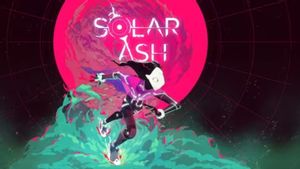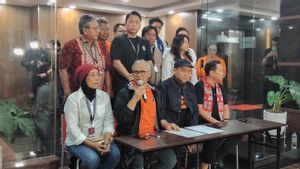UNESCO on Thursday 7 September published its first guide on the use of Generative Artificial Intelligence (GenAI) in education. They appealed to government agencies to regulate the use of this technology, including data privacy protection and set age limits for users.
Launched by OpenAI supported by Microsoft in November 2022, a GenAI chatbot called ChatGPT has become the world's fastest growing app to date, and its emergence has prompted the emergence of competitors, such as Google's Bard.
🔴 BREAKING @UNESCO has published the first-ever guidance for Generative #AI in education. We must ensure that #ArtificialIntelligence helps learners to boost their potential, not diminish it. Learn more: https://t.co/WwOxbyXnjt #TechOnOurTerms pic.twitter.com/fYm4F6JVhF
— UNESCO 🏛️ #Education #Sciences #Culture 🇺🇳 (@UNESCO) September 7, 2023
🔴 BREAKING @UNESCO has published the first-ever guidance for Generative #AI in education. We must ensure that #ArtificialIntelligence helps learners to boost their potential, not diminish it. Learn more: https://t.co/WwOxbyXnjt #TechOnOurTerms pic.twitter.com/fYm4F6JVhF
Students also like GenAI, which can produce everything from essays to math computations with just a few lines of instructions.
"We have difficulty aligning the pace of transformation of the education system with the speed of change in technological advances and developments in this machine learning model," Stefania Giannini, assistant director general for education, told Reuters.
"In many cases, governments and schools adopt technology that is very unknown, even leading tech experts do not claim to understand it," he said.
VOIR éGALEMENT:
Among a series of guidelines in the 64-arbitrary report, UNESCO emphasizes the need for an Artificial Intelligence curriculum passed by the government for school education, in technical education and vocational education.
"GenAI providers must be responsible for ensuring compliance with core values and legitimate goals, respecting intellectual property, and upholding ethical practices, while preventing the spread of disinformation and hate speech," UNESCO said.
They also called for the prevention of the use of GenAI if it would deter learners from developing cognitive abilities and social skills through real-world observations, empirical practices such as experiments, discussions with other humans, and independent logical reasoning.
While China has formulated regulations on GenAI, the EU AI Act is likely to be approved this year. Other countries are still lagging behind in drafting their own AI laws.
The Paris-based agency is also trying to protect the rights of teachers and researchers as well as the value of their practices when using GenAI.
The English, Chinese, Japanese, Arabic, and French versions are automatically generated by the AI. So there may still be inaccuracies in translating, please always see Indonesian as our main language. (system supported by DigitalSiber.id)














